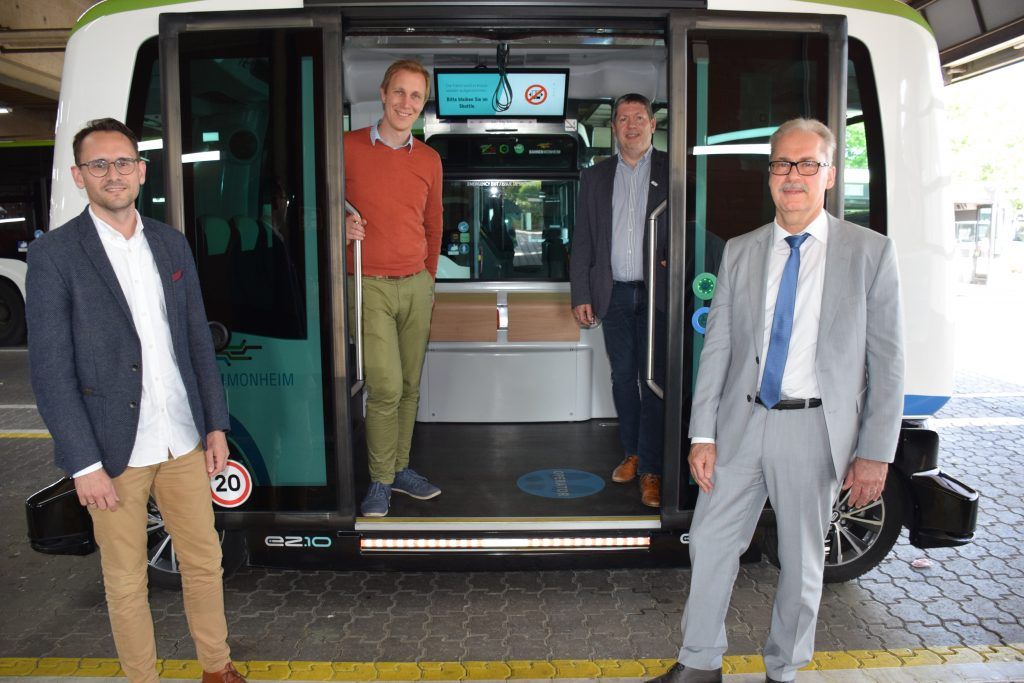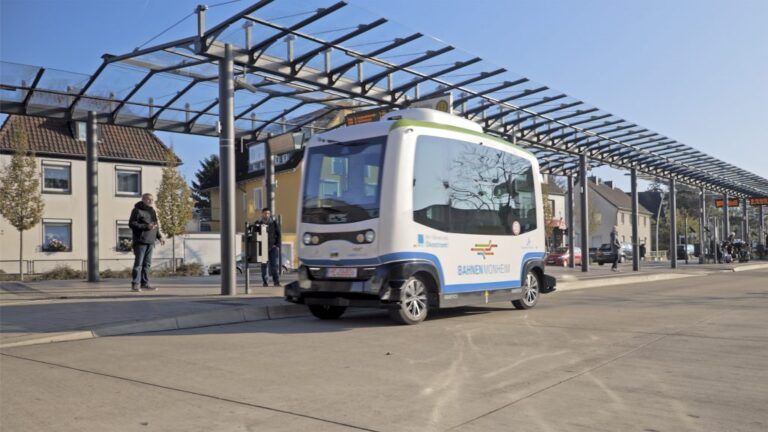A fleet of EasyMile EZ10s, which are creating new transport connections in the German city of Monheim, on the Rhine, have been awarded the Reallabore Innovation Prize by the country’s Federal Ministry for Economic Affairs and Energy.
Monheim is the first municipality in Germany to set up a bus line with automated, electrically-powered and therefore emission-free, vehicles on public roads. It is demonstrating how self-driving electric minibuses can be safely deployed to transport passengers on urban roads.
A fleet of five EZ10s have been operating on the A01 bus line for several months. The route covers a distance of nearly 3km between the city centre and old town revitalising the city’s public transport system.
For the operator Bahnen der Stadt Monheim (BSM), the local public transport company, the autonomous bus fleet also offers a unique opportunity to gain new insights into the acceptance of autonomous vehicles in local public transport, making a forward-looking contribution to the mobility of tomorrow. “With our autonomous bus fleet we are showcasing the opportunity of digitization to everyone. It is the future of mobility in the streets of Monheim today” says Mayor Daniel Zimmermann.

The Reallabore Award is held by the Ministry of the German Federal Ministry for Economic Affairs and Energy (BMWi). New technologies such as artificial intelligence, blockchain or drone technology are tested in regulatory freedom. These so-called “regulatory sandboxes” offer a special opportunity to learn not just about innovation, but also about the rules and regulations underpinning it. This also intends to lay foundations for the further development of the legal framework, a process that is particularly important for an autonomous future.
The “regulatory sandboxes” are a source of inspiration for new business models and technologies, and encourage the use of pioneering technologies under real conditions. BMWi is encouraging companies, researchers, policy-makers and administrations to initiate innovation together. “In view of the high pace of digital change, we need to experiment not only with our technologies, but also with our rules and regulations, so that we can test them and learn. This is what regulatory sandboxes are for,” says Peter Altmeier, federal minister for Economic Affairs and Energy.





